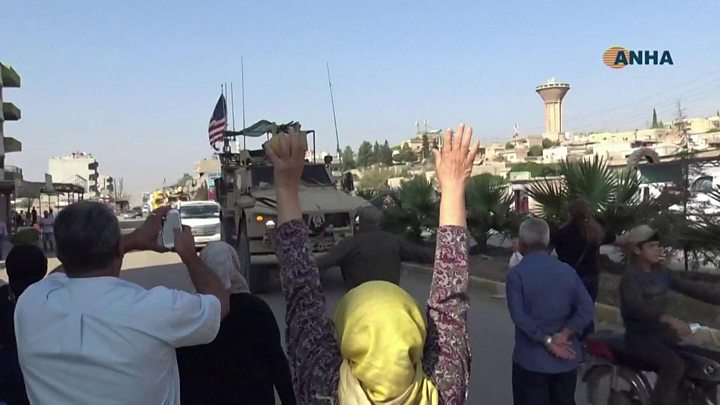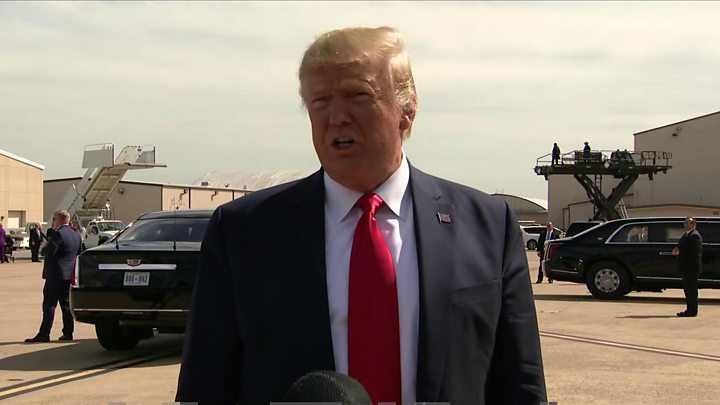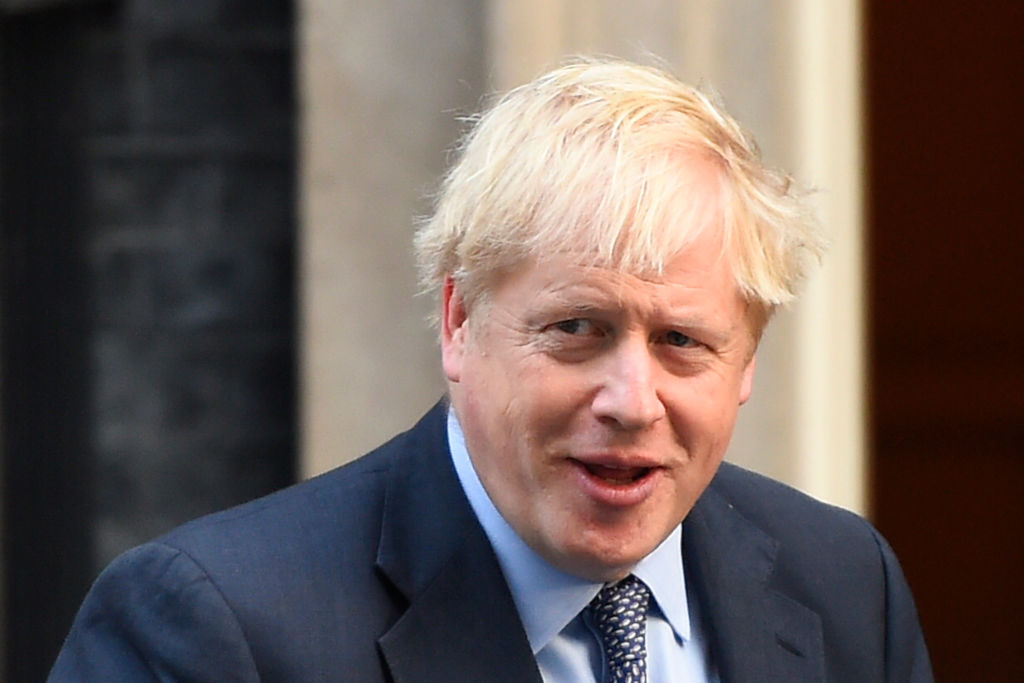By Maria Caspani
In the summer of 2004, U.S. soldier Greg Walker drove to a checkpoint just outside of Baghdad's Green Zone with his Kurdish bodyguard, Azaz. When he stepped out of his SUV, three Iraqi guards turned him around at gunpoint.
As he walked back to the vehicle, he heard an AK-47 being racked and a hail of cursing in Arabic and Kurdish. He turned to see Azaz facing off with the Iraqis.
"Let us through or I'll kill you all," Walker recalled his Kurdish bodyguard telling the Iraqi soldiers, who he described as "terrified."
He thought to himself: "This is the kind of ally and friend I want."
Now retired and living in Portland, Oregon, the 66-year-old former Army Special Forces soldier is among legions of U.S. servicemembers with a deep gratitude and respect for Kurdish fighters they served alongside through the Iraq war and, more recently, conflicts with the Islamic State. So he was "furious" when President Donald Trump this month abruptly decided to pull 1,000 U.S. troops from northeast Syria, clearing the way for Turkey to move in on Kurdish-controlled territory.
Walker's rage was echoed in Reuters interviews with a half dozen other current and former U.S. soldiers who have served with Kurdish forces. Mark Giaconia, a 46-year-old former U.S. Army special forces soldier, recalled similar camaraderie with the Kurds he fought with in Iraq more than a decade ago.
"I trusted them with my life," said Giaconia, who now lives in Herndon, Virginia, after retiring from the Army with 20 years of service. "I fought with these guys and watched them die for us."
The Trump administration's decision to "leave them hanging" stirred deep emotions, Giaconia said.
"It's like a violation of trust," he said.
The White House declined to comment.
BIPARTISAN CRITICISM
Trump's abrupt decision to pull back U.S. troops from along the Syria-Turkey border allowed Turkish President Tayyip Erdogan to launch an offensive into the region aimed at creating a 20 mile (32 km) "safe zone" clear of the Kurdish YPG militia. The Kurdish fighters had been Washington's main ally in the region but the Turkish government regards them as a terrorist group.
In the face of criticism from both Democrats and his own Republicans, Trump defended the move, saying that it fulfilled a campaign promise to reduce foreign troop presence and asserting that the Kurds were "not angels."
The Kurds pivoted quickly, allying themselves with Syria to try to hold off the Turkish onslaught.
Trump then sent Vice President Michael Pence to Ankara to negotiate a pause in the fighting that the United States said would allow the Kurds to pull back from the area Turkey aimed to take, and which Turkey said achieved the main goal of the assault it launched Oct. 9.
Congressional Republicans - including Senator Lindsey Graham, normally a staunch Trump ally - fretted that the move would risk allowing the Islamic State militant group to resurge.
"Congress is going to speak with a very firm, singular voice," Graham said at a Thursday news conference to unveil legislation to impose new sanctions on the Turkish government. He said the "Turkish outrage" would lead to the re-emergence of Islamic State, the destruction of an ally - the Kurds - and eventually benefit Iran at the expense of Israel.
The House of Representatives voted 354 to 60 last week to condemn Trump’s decision to withdraw U.S. forces from northeastern Syria - a rare case of Republicans voting en masse against Trump. A Senate vote on the resolution was blocked, however, by Republican Senator Rand Paul.
Paul, a senator from Kentucky, has voiced his support Trump's withdrawal of troops, saying during a Senate hearing on Thursday that "the Constitution is quite clear, no authorization has ever been given for the use of forces in Syria."
HISTORY OF 'BETRAYAL'
Some of the U.S. soldiers interviewed by Reuters pointed out that the United States has history of forging alliances with Kurdish forces only to later abandon them. In the 1970s, the administration of President Richard Nixon secretly agreed to funnel money to Iraqi Kurds fighting for autonomy from Iraq, only to drop that aid after Iraq and Iran reached a peace treaty to end border disputes in 1975.
Likewise after the 1991 Gulf War, a Kurdish uprising against Iraqi President Saddam Hussein eventually led to a brutal crackdown after U.S. forces left the region.
Those incidents came up often among Kurds who fought alongside a U.S. Army soldier who did several tours in the Middle East.
"Even then, they were bringing up the 1991 betrayal of the Kurds. This idea of betraying the Kurds was something that was very, very front of mind," said the soldier, who spoke on the condition of anonymity since he is still in the military. "There was definitely some skepticism of our support of them long term."
Kurds have come to know betrayal, said Kardos Dargala, a 38-year-old Iraqi Kurd whose relationship with the U.S. military dates back to 2004 and the second U.S. invasion of Iraq.
"Feeling betrayed, throughout history it is a very familiar pattern," said Dargala, who worked as a security contractor for the U.S. military until 2008 - when he immigrated to the United States, joined the U.S. Army, and was deployed to Afghanistan.
Dargala, a U.S. citizen, was injured multiple times in combat. He returned to Iraq earlier this year to spend time with family members who are unable to travel to the United States.
The president's withdrawal of troops from Syria left him in disbelief. Dargala said Trump's decision ran counter to U.S. values and interests and sent the wrong message to its allies.
"The path the president is on," he said, "is a very destructive path."
(Reporting by Maria Caspani in New York; Writing by Scott Malone; Editing by Brian Thevenot)
Let's block ads! (Why?)
http://ca.mobile.reuters.com/article/idUSKBN1X00ZO
2019-10-21 10:06:00Z
52780414092298







